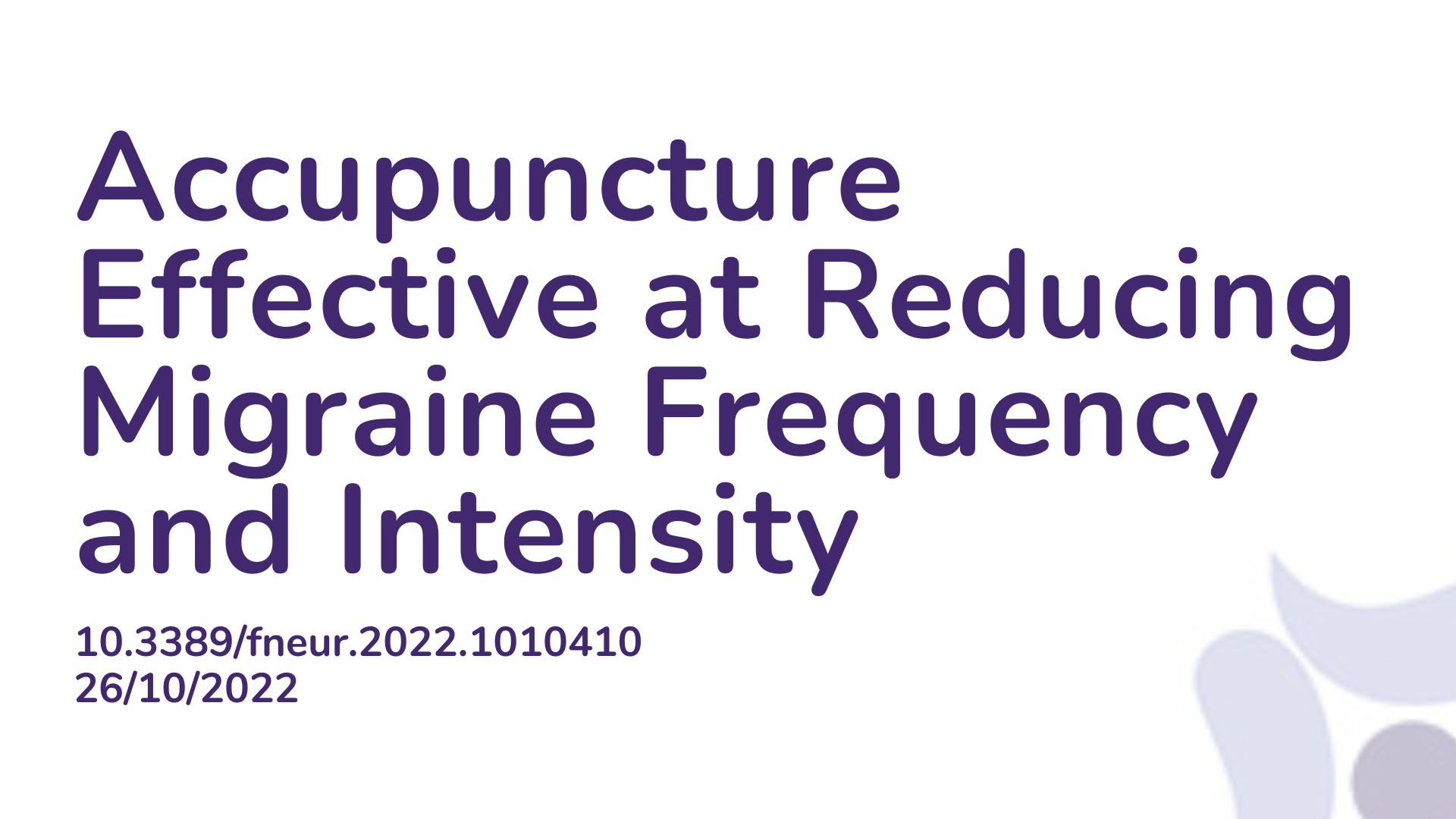Summary:
Migraine is a widespread neurological disorder causing recurrent, severe headaches. Current treatments, such as prescribed pain relief and triptans, pose risks of addiction and adverse effects, adding to the economic and psychological burdens on sufferers. Acupuncture offers promise as a safer alternative, but its effectiveness remains debated. To clarify, this study is a comprehensive review and meta-analysis comparing various acupuncture therapies. The aim was to identify the most effective and safe options, aiding physicians in better treating migraine patients. Databases were searched for RCTs on acupuncture therapy for migraine up to March 2022. The researchers assessed 39 studies involving 4,379 patients and 13 acupuncture-related methods. Acupoint injection ranked highest overall in benefit, followed by acupoint implantation. Electroacupuncture was optimal for reducing migraine days, with embedding needle therapy close behind. Embedding needle therapy ranked first in migraine duration, while acupoint injection led in attack frequency, followed by conventional acupuncture plus massage. These findings suggest acupuncture-related therapy could effectively treat migraine. Conventional acupuncture shows significant improvements in overall migraine attacks, including migraine days, duration, and attack frequency. However, further high-quality studies are needed for confirmation.
Abstract:
Background: Migraine is a worldwide disabling chronic brain disorder, some studies suggest acupuncture-related therapy plays an important role in raising efficiency rates and reducing migraine attacks. However, clinical trials comparing the efficacy of different interventions for migraine are limited and controversial. This network meta-analysis (NMA) was performed to review all randomized controlled trials (RCTs) comparing the effects of acupuncture-related therapy for migraine. Methods: Randomized controlled trials (RCTs) of acupuncture-related therapy for migraine were searched in the following databases from the date of database inception to March 31, 2022, including PubMed, Embase, Cochrane Library, Web of Science, China National Knowledge Infrastructure (CNKI), VIP Database, Wanfang Database, and Chinese Biomedical Database (CBM). The primary endpoint was visual analog scale (VAS) scores. The secondary endpoints were the number of migraine days, duration of migraine, and frequency of migraine attacks. We used Cochrane risk of bias to assess the quality of evidence for outcomes. Results: Thirty-nine studies involving 4379 patients with 13 different acupuncture-related methods were evaluated. According to surface under the cumulative ranking curve value, acupoint injection was ranked the highest (98.0%) in VAS scores, followed by acupoint implantation (79.0%); electroacupuncture was the optimal intervention method (82.4%) in the number of migraine days, followed by embedding needle therapy (73.1%); embedding needle therapy ranked first (99.9%) in the duration of migraine, followed by acupoint injection (77.4%); acupoint injection was the best intervention (99.3%) in the frequency of migraine attacks, followed by conventional acupuncture plus massage (73.8%). Conclusion: These results provide preliminary evidence that acupuncture-related therapy could be recommended as one of the effective treatments for migraine. Conventional acupuncture has significant effects on improving VAS scores, the number of migraine days, duration of migraine, and frequency of migraine attacks. However, more high-quality studies should be carried out to verify this finding.
Article Publication Date: 26/10/2022
DOI: 10.3389/fneur.2022.1010410



